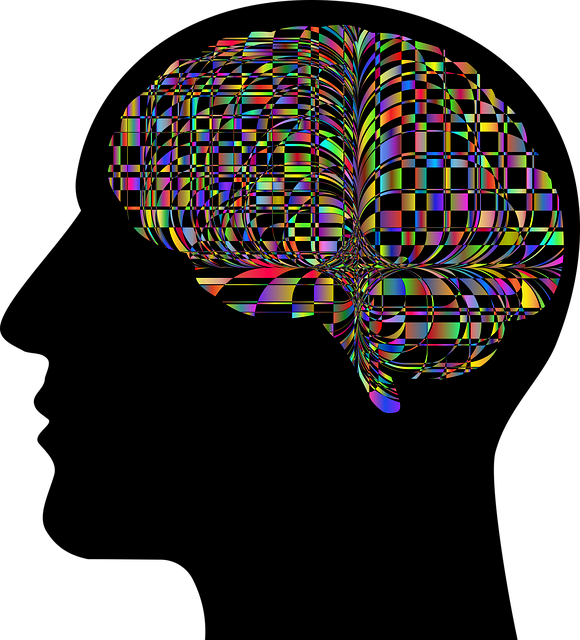The diagnosis of mental illness in children from diverse cultural backgrounds faces significant challenges due to language barriers, systemic issues, and the complexity of young minds. Traditional tools are often ineffective for bilingual individuals, leading to misdiagnosis and inappropriate therapy. To address this gap, initiatives like mental wellness podcasts tailored to diverse populations aim to provide accessible information on early intervention and coping skills development. Bilingual therapy is crucial for culturally sensitive assessments, utilizing native languages to enhance diagnosis accuracy and improve mental health support for all children, regardless of their linguistic or cultural background. By fostering trust and understanding through compassion cultivation practices, bilingual therapy empowers children from multilingual families to receive tailored interventions that address unique cultural beliefs and challenges.
Mental illness diagnosis accuracy is a critical concern, especially in diverse communities with bilingual populations. This article explores current challenges in mental health assessment, focusing on gaps in traditional methods and the significant impact of misdiagnosis on children and families. We delve into innovative solutions, highlighting the role of bilingual therapy as a powerful tool for improving diagnosis, particularly in at-risk groups. Additionally, we examine advanced technologies and training initiatives aimed at enhancing accuracy and cultural competency among healthcare professionals.
- The Current Challenges in Mental Illness Diagnosis
- – Exploring the gaps in current diagnosis methods
- – Impact of misdiagnosis on children and families
- Bilingual Therapy as a Tool for Improved Diagnosis
The Current Challenges in Mental Illness Diagnosis

The current landscape of mental illness diagnosis faces several challenges, particularly when it comes to accurately identifying conditions in children and adolescents. The complexity of young minds and the variability of symptoms across different cultural backgrounds pose significant hurdles for healthcare professionals. Many traditional diagnostic tools were developed primarily for monolingual populations, which can limit their effectiveness when assessing bilingual individuals. This issue is especially pertinent given that a considerable portion of children today speak multiple languages, reflecting the diverse nature of modern societies.
Moreover, mental health policy analysis and advocacy efforts have highlighted systemic barriers to accurate diagnosis, including limited access to specialized services for minority communities. In addressing these challenges, initiatives such as the production of mental wellness podcast series can play a crucial role in raising awareness about early intervention strategies and coping skills development. By providing accessible information tailored to diverse populations, these resources aim to bridge the gap in care, ensuring that all children receive the appropriate therapy for their mental health needs, regardless of language or cultural background.
– Exploring the gaps in current diagnosis methods

In recent years, there has been a growing recognition of the need to improve the accuracy and reliability of mental illness diagnoses, especially among children. Despite advancements in healthcare, current diagnosis methods often fall short due to various factors. One significant gap lies in the limited availability of specialized therapists for children who speak different languages. Bilingual therapy for children is crucial, as it addresses cultural barriers and ensures more accurate assessments by considering an individual’s linguistic background. This approach is essential in a diverse society where many families may struggle to find culturally sensitive mental healthcare services.
Furthermore, the absence of comprehensive training programs for healthcare providers regarding cultural sensitivity in mental healthcare practice contributes to these challenges. Implementing community outreach programs can help bridge this gap by increasing awareness and access to resources. By focusing on both bilingual therapy and provider competency training, along with community engagement strategies, there is potential to enhance diagnosis accuracy and improve overall mental health support for diverse populations.
– Impact of misdiagnosis on children and families

Misdiagnosis of mental illness in children can have profound and lasting consequences for both the child and their family. When a child is incorrectly labeled with a particular disorder, it may lead to inappropriate therapy for children, such as ineffective treatment plans or even unnecessary medication. This not only delays access to the right support but also impacts the emotional well-being promotion techniques aimed at fostering positive thinking in young minds. The impact extends beyond the individual; families often face burnout prevention strategies, both financially and emotionally, as they navigate the complexities of mental healthcare systems.
The effects can be devastating, creating a cycle of confusion, frustration, and potential trauma. Bilingual families may face additional challenges if cultural or linguistic barriers contribute to misdiagnosis. Accurate identification is crucial for tailoring interventions that resonate with each child’s unique needs, ensuring they receive the most effective therapy for children while building resilience and fostering positive thinking.
Bilingual Therapy as a Tool for Improved Diagnosis

Bilingual therapy has emerged as a powerful tool in enhancing the accuracy of mental illness diagnoses, particularly for children from multilingual backgrounds. This therapeutic approach recognizes and leverages an individual’s native language as a bridge to understanding their unique mental health experiences. By incorporating the patient’s primary language into treatment, therapists can facilitate more nuanced communication, enabling them to gather detailed insights into cultural beliefs, family dynamics, and personal struggles that might otherwise remain unspoken or misinterpreted.
This strategy is especially relevant in light of Mental Health Policy Analysis and Advocacy efforts aimed at improving access to culturally sensitive care. Bilingual therapy not only addresses the language barrier but also cultivates an environment of compassion and trust. By incorporating compassion cultivation practices, therapists can create a safe space for clients to express themselves openly, reducing potential burnout prevention challenges often faced by healthcare providers when dealing with complex cultural contexts.
Mental illness diagnosis accuracy is a multifaceted challenge, with gaps in current methods impacting individuals, especially children and their families. The article has highlighted the limitations of traditional approaches and the potential of Bilingual Therapy as a powerful tool to enhance diagnosis. By leveraging bilingual professionals and culturally sensitive practices, this therapy offers a promising path forward, ensuring more accurate and timely interventions for all, particularly in diverse communities. Embracing these innovations is crucial in fostering better mental health outcomes.








